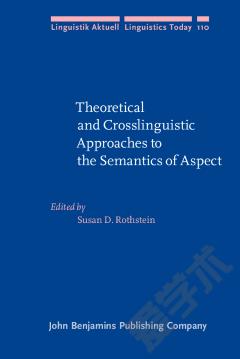The Grammatical Realization of Polarity Contrast —— Theoretical, empirical, and typological approaches
----- 极性对比的语法应用:理论、经验和类型学方法
Dialogic Ethics offers an impressionistic picture of the diversity of perspectives on this topic. Daily we witness local, regional, national, and international disputes, each propelled by contention over what is and should be the good propelling communicative direction and action. Communication ethics understood as an answer to problems often creates them. If we understand communication ethics as a good protected and promoted by a given set of communicators, we can understand how acts of colonialism and totalitarianism could move forward, legitimized by the assumption that “I am right.” This volume eschews such a presupposition, recognizing that we live in a time of narrative and virtue contention. We dwell in an era where the one answer is more often dangerous than correct.
{{comment.content}}








 京公网安备 11010802027623号
京公网安备 11010802027623号